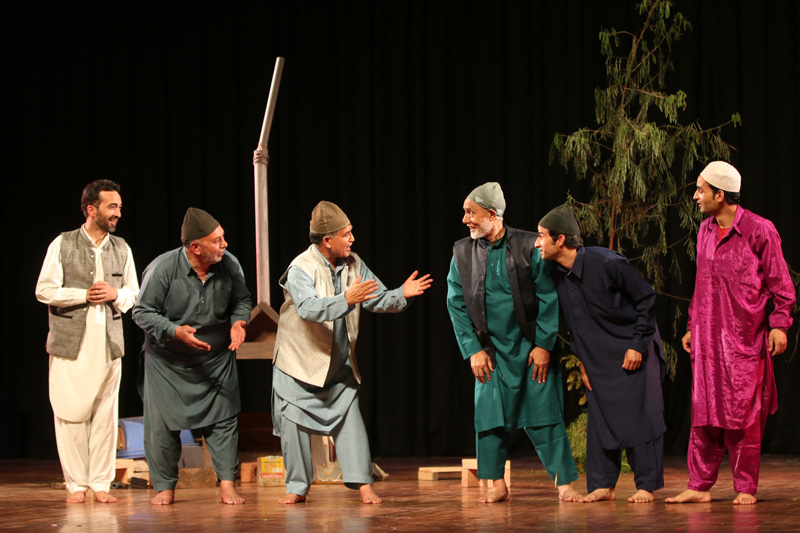Lalit Gupta
Jammu, Feb 20: Organized by the National School of Drama, New Delhi, in collaboration with the University of Jammu, the Jammu chapter of the International Drama Festival 22nd Bharat Rang Mahostava was Inaugurated by Lieutenant Governor, Manoj Sinha, at the Zorawar Singh Auditorium, here today.
The opening play of the three-day international drama festival was ‘Wath’, an adaptation of Munshi Premchand’s short story ‘Gilli Danda’ in Kashmiri. Written and directed by Reshi Rashid and presented by Azad Dramatic Cultural Club, Srinagar., the plot of the play revolved around an engineer who returns to the same village where he had spent his childhood. He remembers those days full of fun and frolic, especially the joy of playing ‘Gulli Danda’, with friends like Gaya, a champion player. He meets Gaya and urges him to play the Gilli Danda game with him. In the game with the engineer, the Gaya champion loses the game. But later in the tournament, he displays his skills. The engineer feels that Gaya had allowed him to win deliberately. He then realizes that he can get regard and honor from Gaya but not friendship, as the old bond was lost due to changes in their status.
The simple but artful set design fashioned by a semi-circle of a few lush green tree branches along with wild grass fences forming the branches, along with an iron smith’s workshop and the kiln tugged in a corner, not only successfully created the ambiance of Kashmiri village but also set out the acting area on the vast stage of the auditorium.
From the opening scene of boys playing ‘Gilli Danda’, their small fights to growing up as men engaged in eking out a livelihood, like Gaya involved in tasks of fashioning iron instruments, and later the during the game and the realization of the social distance between the friends unfolded as sequences interspersed by the narrators taking further the thread of the play’s plot.
The actors, especially as boys with their aggregated body language, gestures, and speech, along with costumes: pherans, tight pajamas, and conical caps rendered a touch of naturalism to the characters. The live and soul-touching folk music by the trio comprising of players of ‘rabab’ and ‘nut’, the earthen pot along with the main singer, lit up the intended imports of the emotive scenes. The only minor irritant was too many entries and exits of the narrator.
Tomorrow, a non-verbal play ‘Silence’, written and directed by Soma Giri will be staged by Begulati Natyamandir, Kolkota.
Trending Now
E-Paper


